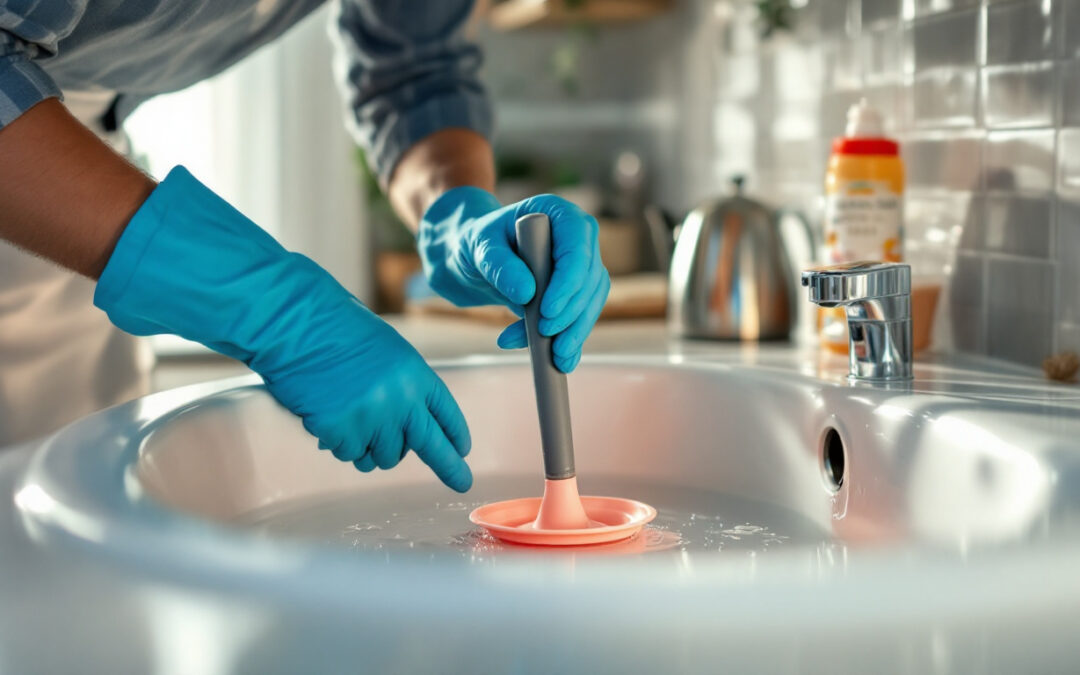I. Introduction
Experiencing slow draining sinks can be incredibly frustrating. Not only does it disrupt your daily activities, but it can also lead to more significant plumbing issues if not addressed promptly. Understanding the causes behind slow drains can help you take corrective action before emergencies arise.
II. Common Causes of Slow Draining Sinks
A. Clogs in the Drainpipe
One of the most common culprits for slow draining sinks is clogs formed in the drainpipe. Hair combined with soap residue often accumulates in bathroom sinks, causing a blockage that leads to slow drainage. In kitchen sinks, food particles can build up and create an obstruction, making it difficult for water to flow freely. Learn more about clog risks in our insights on top causes of residential drain blockages.
B. Pipe Composition and Design
The type and age of your plumbing system can also play a significant role in slow drainage. Older plumbing systems, especially those with narrow pipes, are more prone to clogs due to their limited capacity. In contrast, wider pipes can generally handle debris more effectively, reducing the likelihood of slow drains.
C. Foreign Objects
Sometimes, slow drains can be caused by foreign objects that accidentally fall into the sink. Items like toys or utensils can become lodged in the plumbing, obstructing water flow. Additionally, the build-up of miscellaneous debris can contribute to clogs, worsening drainage issues over time.
D. Ventilation Issues
Proper ventilation is crucial for effective drain functioning. If your sink is improperly vented, it can lead to slow drainage due to a vacuum effect in the plumbing system. Common signs of ventilation problems include gurgling sounds or slow draining in multiple fixtures, indicating a potentially severe issue. Explore how seasonal weather affects your drain system.
III. Emergency Solutions for Immediate Relief
A. Plunging Techniques
In cases of slow drains, plunging can often provide immediate relief. Using a plunger effectively involves creating a strong seal around the drain and using a firm motion to generate suction. This method works best for minor clogs caused by hair or food particles that can be dislodged easily.
B. DIY Drain Cleaning Solutions
For those who prefer DIY methods, using a baking soda and vinegar combination can work wonders. This natural solution helps to break down minor clogs and deodorize your drains without harmful chemicals. If opting for chemical drain cleaners, it’s essential to understand their pros and cons, as they can be effective but may also damage pipes over time. Learn the comparison between chemical vs. enzyme drain cleaners.
C. Hot Water Flush
Another quick fix for slow draining sinks is the hot water flush. Pouring boiling water down the drain can help dissolve grease and soap build-up. To execute this method correctly, slowly pour hot water down the drain in stages, allowing it to work through any clogs without overwhelming the pipes. Find more tips in our article on how to keep kitchen drains clear.
IV. Preventive Measures
A. Regular Maintenance Tips
Preventive maintenance is key to avoiding slow drains in the first place. Regularly cleaning your sink, especially after food preparation or personal grooming, can significantly minimize buildup. Additionally, using strainers can effectively catch debris before it enters the pipes, reducing the chance of clogs. For professional tips, check out how preventive drain cleaning can save you thousands.
B. Professional Inspection
Scheduling routine inspections by a professional plumber can be invaluable for maintaining your plumbing system. A qualified plumber can identify potential issues before they escalate into emergency situations. During an inspection, expect the plumber to check for leaks, clogs, and overall pipe health. Learn when it’s time to call a plumber for drain issues vs. DIY fixes.
C. Addressing Root Causes
To ensure long-term solutions to slow draining sinks, consider upgrading old plumbing systems. Installing more efficient drainage systems can greatly improve water flow in your home. By addressing the root causes of drainage issues, you can prevent future problems and maintain optimal plumbing performance.
V. When to Call a Professional
A. Signs of Serious Problems
There are clear indications that it may be time to call a professional for your slow draining sinks. If the problem persists despite your DIY attempts, or if you notice unusual smells and gurgling sounds, it’s essential to seek expert assistance. These signs could point to serious plumbing issues that require professional intervention. Learn more about signs you need emergency drain unblocking services.
B. Types of Professional Services Available
When calling a plumber, a variety of services can assist with slow draining sinks. Drain cleaning services can effectively remove stubborn clogs, while camera inspections provide a visual assessment of the plumbing system’s condition. These services can help you pinpoint the exact issue and determine the best course of action. Explore complete service offerings in 24/7 emergency drain services.
VI. Conclusion
Dealing with slow draining sinks is more than just an inconvenience; it’s crucial to address the issue to prevent further complications. Implementing preventive measures and recognizing the signs of plumbing problems can save you time and money.
If necessary, don’t hesitate to call us at (916) 562-2345 to ensure your plumbing system remains in optimal condition. Our team is ready to assist you with tailored solutions for fast and effective sink drainage remedies.


